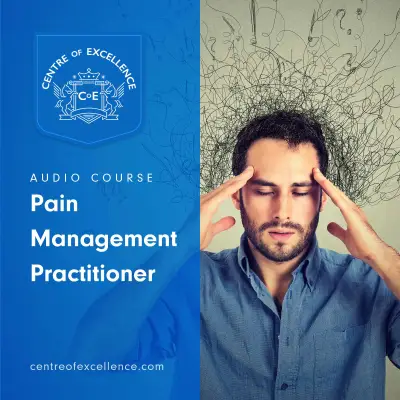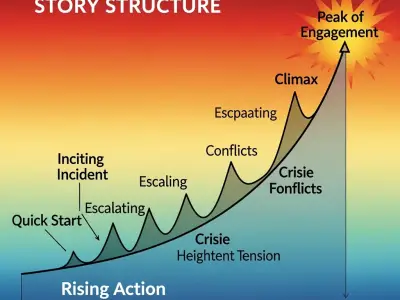You’ve probably encountered the term ‘hypnotherapy’ before. But did you know that hypnotherapy is a powerful, complementary treatment for those grappling with feelings of depression? This innovative approach merges the therapeutic potential of hypnosis with psychological healing techniques, offering a beacon of hope for those seeking relief from pervasive mental health challenges.

Jump to:
When an individual is treated for depression via hypnotherapy, techniques are employed that aim to alter their state of consciousness. While the individual is in this changed state of mind, they may be more open to suggestion and change. This is extremely beneficial when addressing the underlying psychological issues which often contribute to depression.
But how can hypnotherapy help with depression? After all, when someone says the word “hypnotherapy”, you may imagine images of performers sending willing participants to sleep, or you may envisage hypnosis as some kind of mind control. This is an outdated view of hypnosis. Those experiencing hypnotherapy are not sent to sleep. It’s actually quite the opposite; they usually experience a heightened state of concentration and focus. This is known as the hypnotic trance. While in a hypnotic trance, it is much easier for individuals to be treated for depression. This approach works on a subconscious level; the techniques used in the treatment help to identify and address the root causes of the psychological issues while offering suggestions that can help break negative patterns of thinking.
Recommended for you!
Best SellersWhy Choose Hypnotherapy To Treat Depression?
Approximately 1 in 6 UK adults find themselves wrestling with moderate to severe depression, a trend that is sadly expected to worsen over time. With statistics like this, now is a great time to consider how hypnotherapy can help with depression. So, let’s delve into the various ways hypnotherapy is making innovative strides in the treatment of depression, providing avenues for healing as well as new hope for long and short-term sufferers.
Reframing Negative Thoughts
One of the biggest contributing factors to depression is repetitive negative thoughts. Once an individual finds themself in a pattern of negative thinking, it can be extremely difficult to get out of it. But hypnosis can help. Therapists can use the hypnotic trance to encourage individuals to reframe negative thoughts into positive ones. This can help them to change the way they perceive themselves as well as their life situations, resulting in a reduction of depression symptoms.
Reducing Stress and Anxiety
From time to time, we all get stressed. However, people suffering from depression are far more likely to have feelings of anxiety and stress, and these occurrences are usually far more frequent and for longer periods of time. Hypnotherapy often involves relaxation techniques. These techniques are statistically more likely to reduce feelings of stress, anxiety and unease. As such, those receiving treatment may experience a decrease in the intensity and frequency of depressive episodes.
Addressing Underlying Issues
Unresolved grief, past trauma and a negative belief system are some of the underlying issues which contribute to depression, and many therapists advise that these issues can often be difficult to tackle when in a fully conscious state. Hypnosis can help to put an individual into a state of open-mindedness where they can address issues that may have previously caused them distress.
Suggestion Therapy
While under hypnosis, individuals are much more receptive to suggestions, and trained therapists can use this to instil positive affirmations as well as various coping mechanisms. These are extremely important in helping someone change their negative thoughts. Suggestion therapy is not only useful when under hypnosis; those receiving treatment often draw upon these experiences and techniques to help improve their everyday lives.
Behavioural Changes
Sometimes, depression can be linked to certain types of behaviours, such as unhealthy eating habits, unnecessary social isolation, chronic insomnia or bad habits such as smoking. The good news is that hypnotherapy can help stop this and establish alternative, healthier lifestyle behaviours.
Physiological Healing and Emotional Release
It is essential that those suffering from depression are able to access a safe space for emotional catharsis. When using hypnotherapy for anxiety and depression, the individuals receiving treatment can be guided to a safe space where they can confront and process the emotions they may have been avoiding.

How Effective is Hypnosis for Depression?
The effectiveness of hypnosis for depression can vary from person to person. However, there is little doubt that treatment has proven to be very valuable. Research has shown that hypnotherapy is effective in alleviating symptoms of depression, usually when combined with other forms of psychotherapy, such as cognitive behavioural therapy (or CBT, as it is sometimes known).
It is often cited that individuals treated for depression through hypnosis saw significantly lower levels of depression symptoms, which resulted in a 73% remission rate of symptoms over 12 months. Furthermore, most therapists and psychologists recognise hypnotherapy as an extremely important tool when battling depression and anxiety, meaning that the practice has upstanding support from authorities on the matter.
What Forms of Depression Can Be Treated?
Having depression can be a challenging and uncertain time, but there is always hope, and things are never as dire as they may first seem. Because depression is such a complex and diverse topic, it is pretty safe to assume that there is no one form of depression and how depression affects us can vary from person to person. Hypnotherapy has proven to be extremely effective when treating various types of depression. Some of the different forms of depression that can benefit from hypnotherapy treatment include:
- Dysthymia (Persistent Depressive Disorder)
- Seasonal Affective Disorder
- Major Depressive Disorder
- Adjustment Disorder with Depressed Mood
- Anxiety Induced Depression
While the forms of depression mentioned above are some of the most commonly treated, hypnosis can be valuable when treating other types of depression as well.
Discover The Power of Hypnotherapy with Centre of Excellence
There is little doubt that hypnotherapy is extremely effective when it comes to treating depression. At Centre of Excellence, we pride ourselves on providing beneficial hypnotherapy practitioner courses that you can use to unlock your true potential and explore the wonderful world of hypnotherapy. Some of the fantastic benefits of our course include:
- Expert Knowledge and Applied Practise
- Skills for Personal Empowerment and Professional Growth
- Mastery of Hypnotherapy Techniques
- Many More
Take Advantage of Our Special Offer
Start our course today to take advantage of our exclusive offer. Our course is now available at the exclusive rate of £29, instead of the original £127 (save £98!). We’re committed to making transformative and life-changing education available for all. Please contact us today for more information.
Interested in becoming a hypnotherapist yourself? Why not listen to the student testimonial of Matt Gilbert? Matt studied with us and now he is the proud owner of his very own hypnotherapy, neurolinguistic programming and cognitive reprogramming therapy business.












